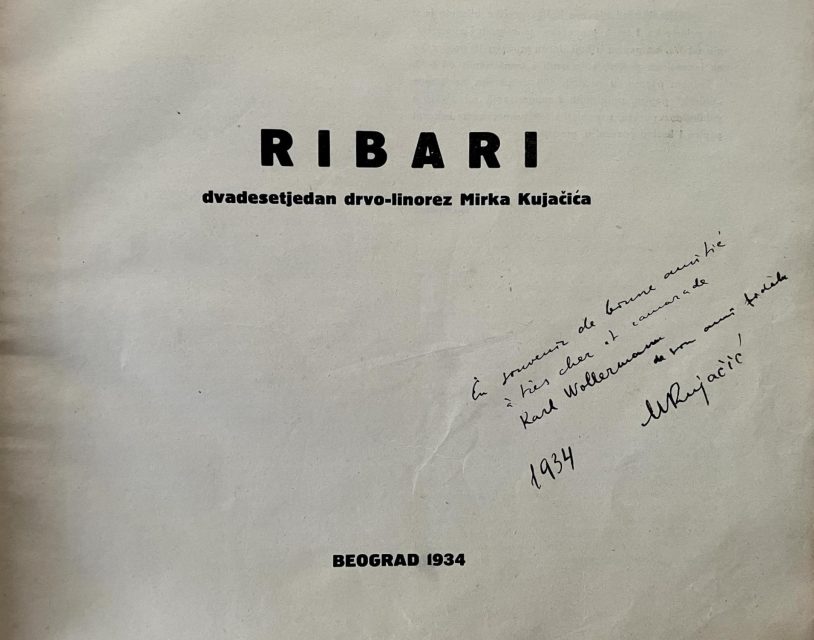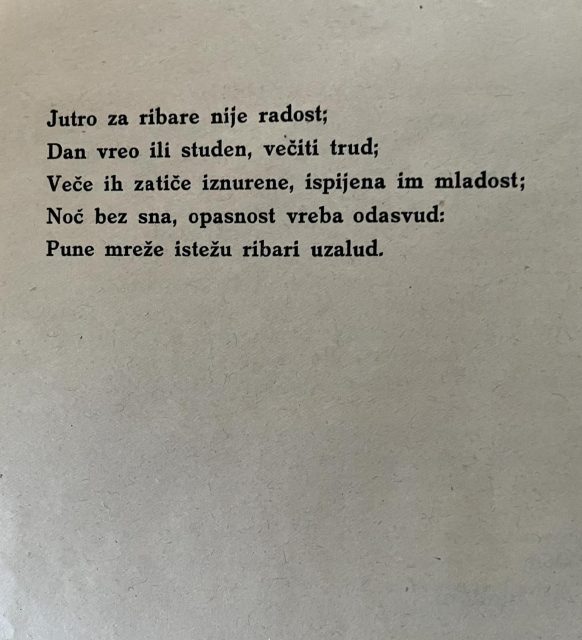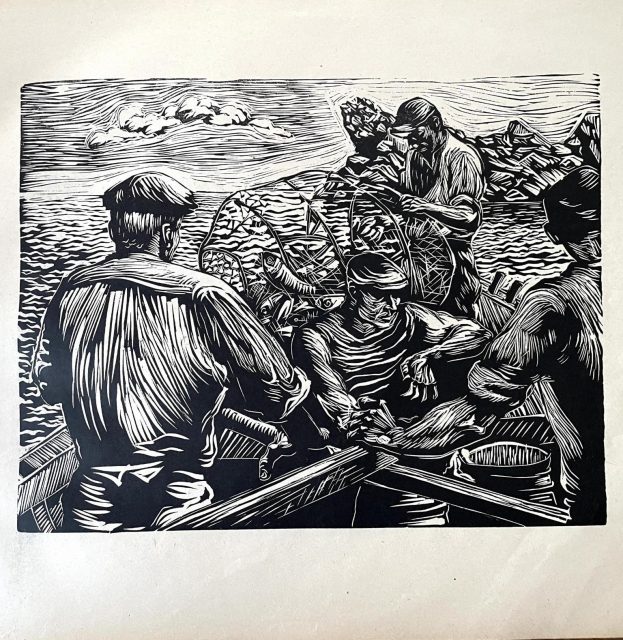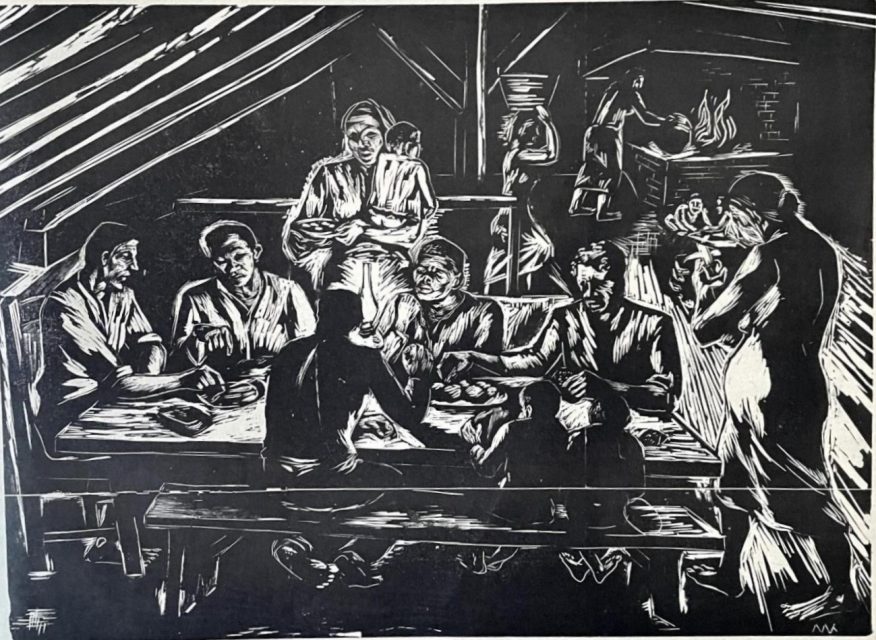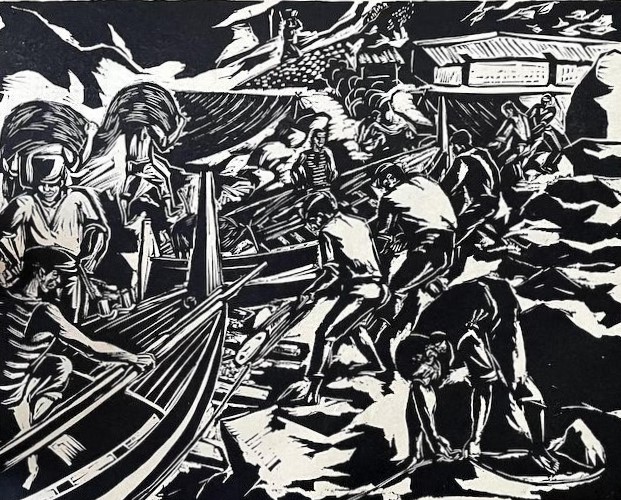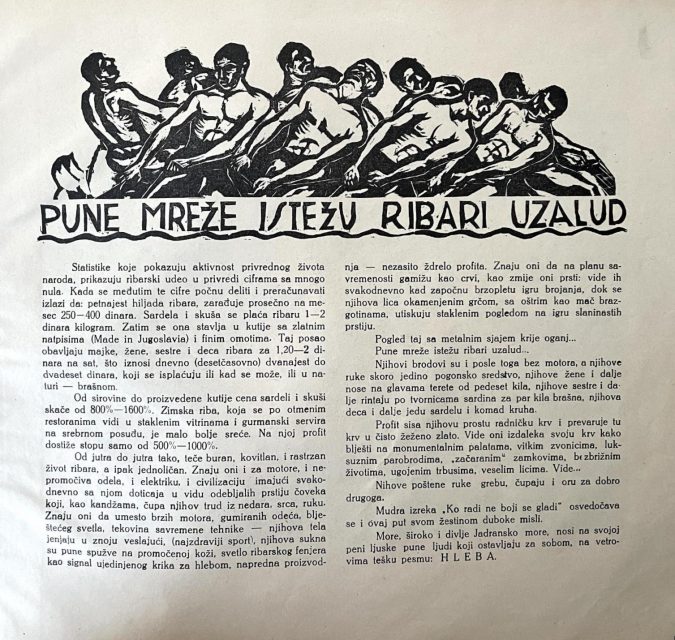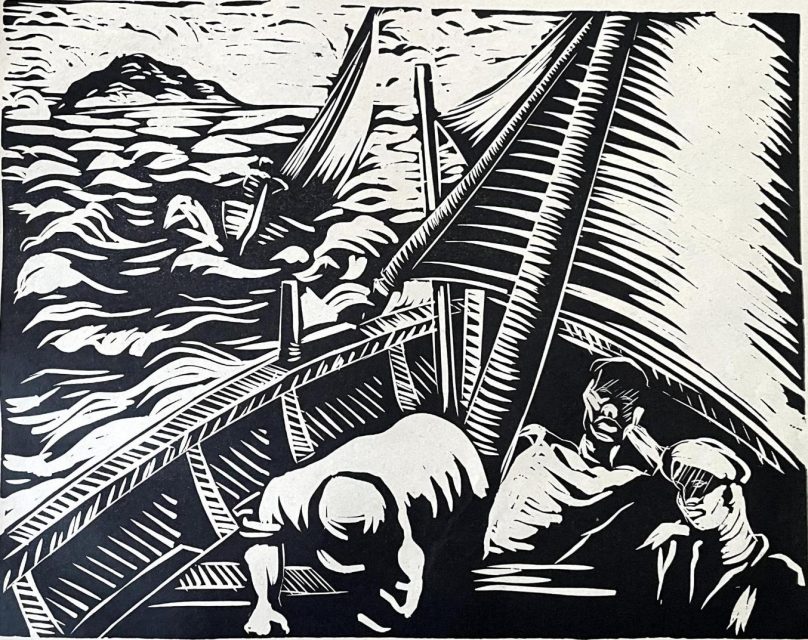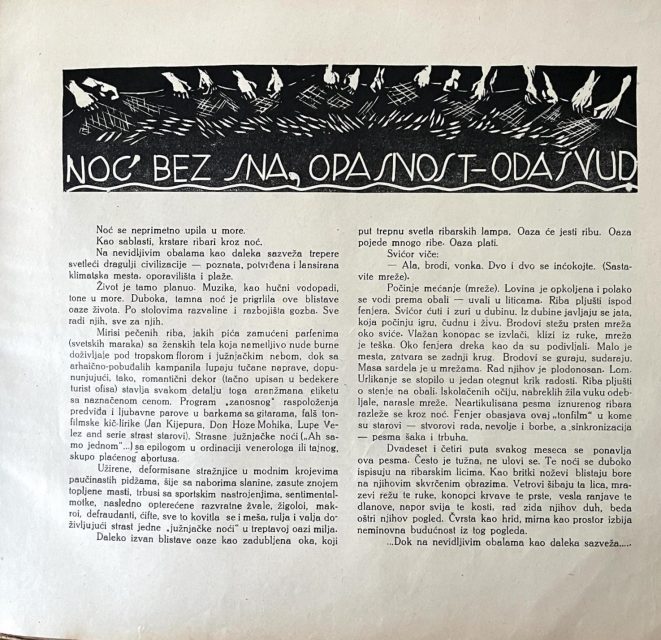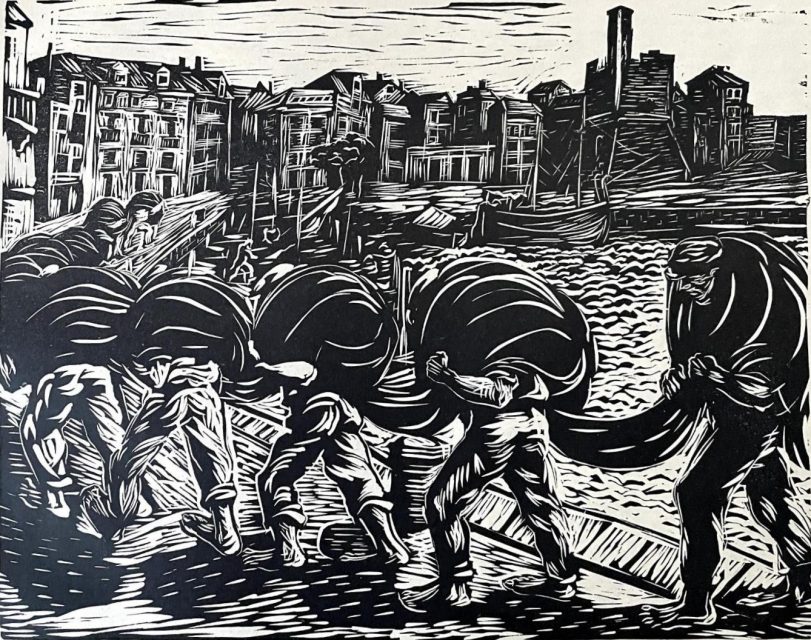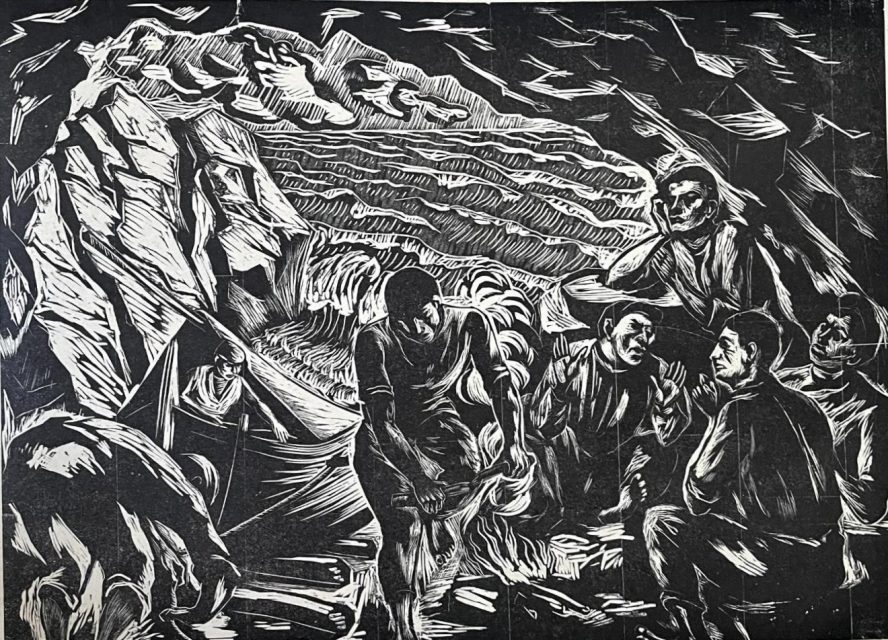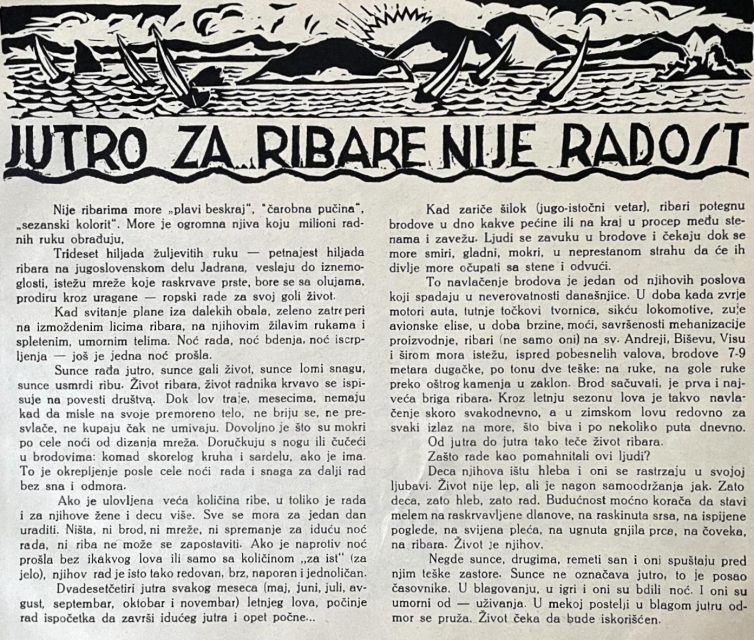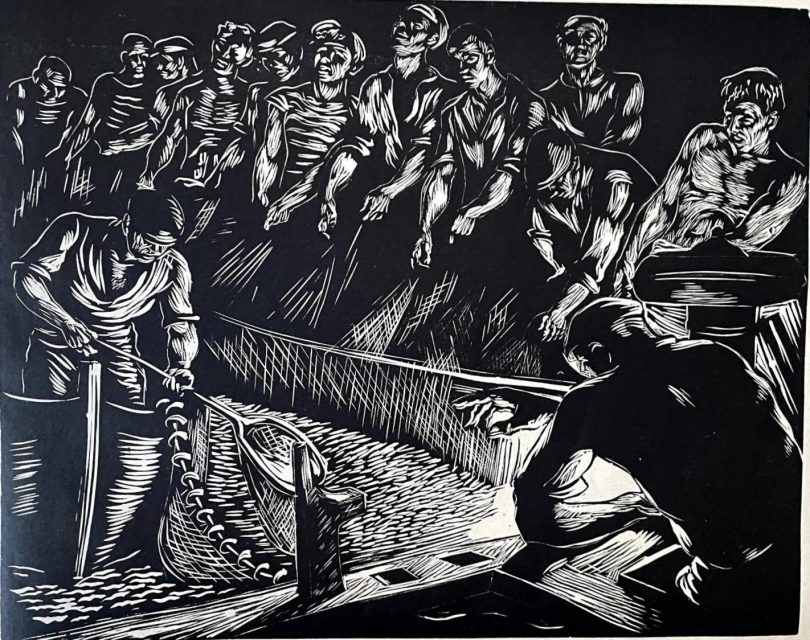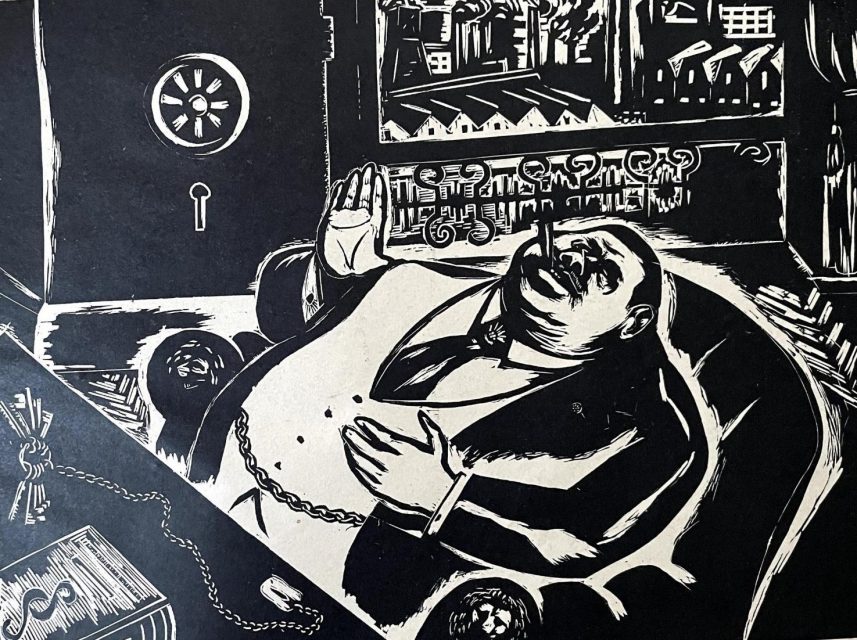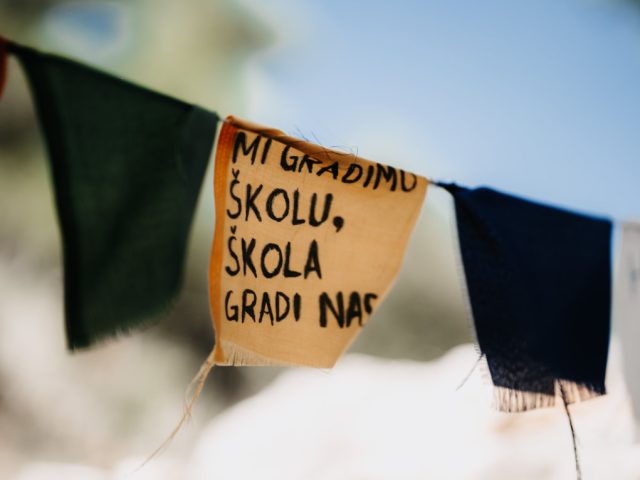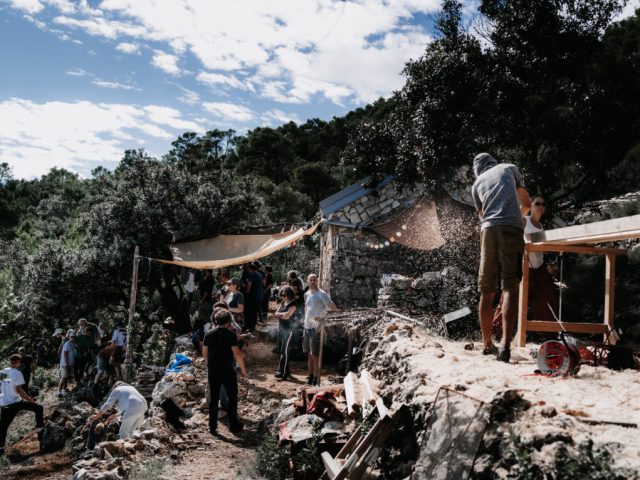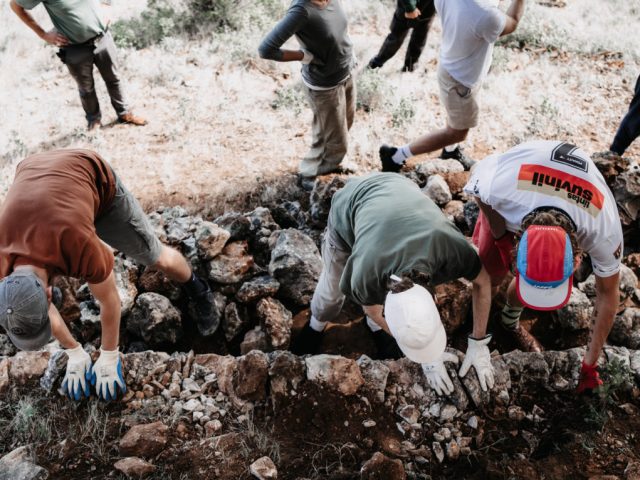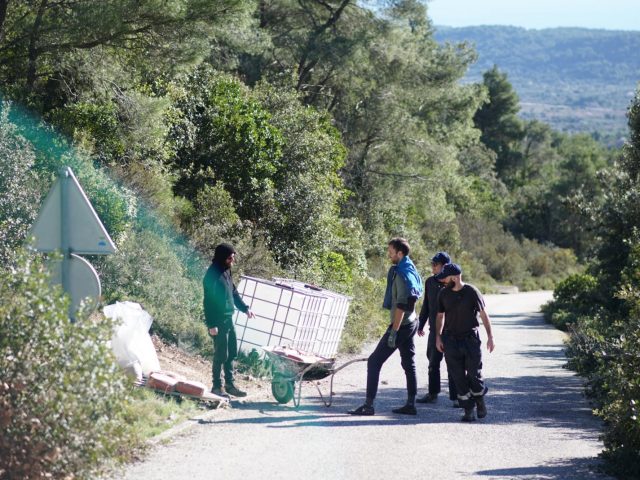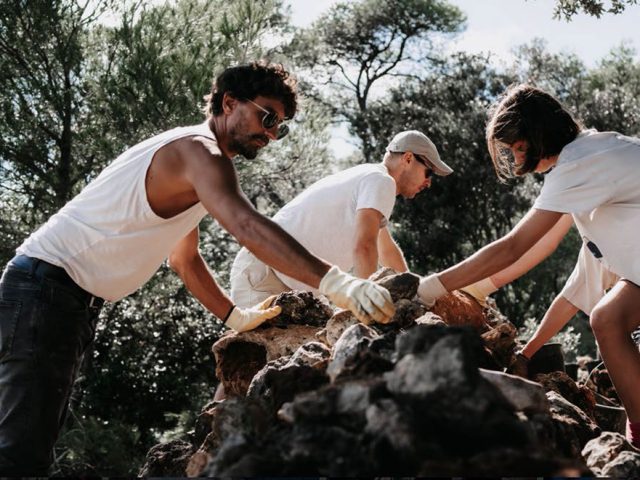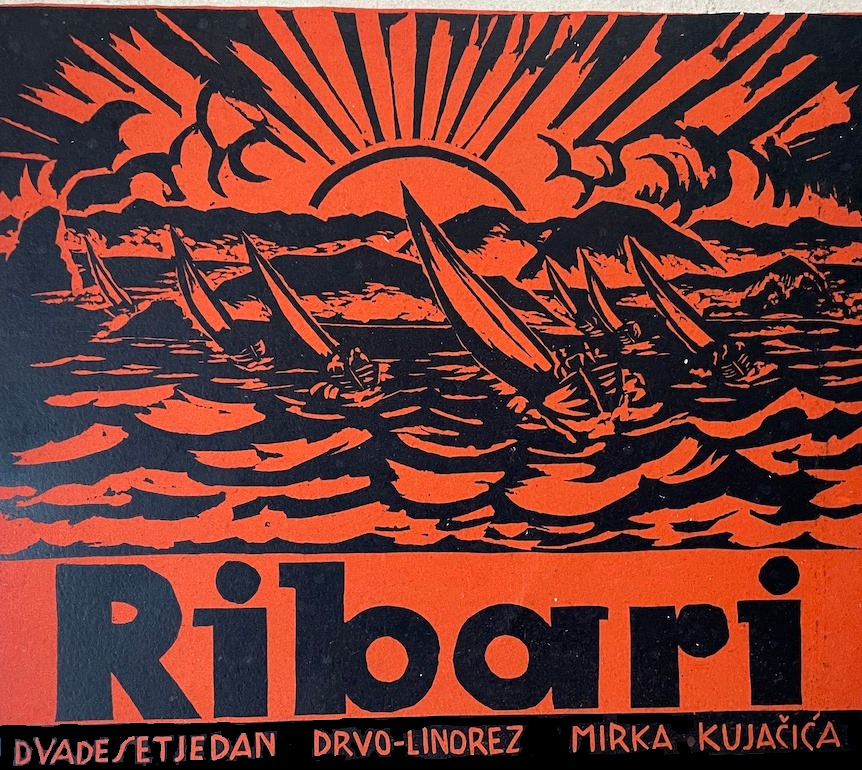
MIRKO KUJAČIĆ (1901–1987) was an extremely committed painter, a sort of a rebel with a palette, important for ISSA because he visited the Vis archipelago in the early 1930s, just before the outbreak of WWII. He lived with the fishermen of the Adriatic islands for several months when he made the map “Fishermen” (Ribari). It is a map that inspires us, and we intend to digitize it (with comments from art historians, philosophers, and fishermen) and mount an exhibition to reaffirm and revalue this now largely forgotten artist. Mirko Kujačić studied technique, philosophy, acting, and sculpture until he finally settled on painting. In the end, he ended up in Paris as a student of the great French painter André Lhote. Returning to Belgrade, he became one of the leading figures in social art.
“Bloody sun melts into the sea” is the opening line of the text accompanying the graphic “Fishermen” by Mirko Kujačić which describes the difficult life of Adriatic fishermen. The map is divided into five parts and follows the day and night work of fishermen in Komiža and Svetac. It is social art at its best – deromanticizing the notion of the sea: “For fishermen, the sea is not “blue infinity,” “a magical open sea,” or “a Cézanne color.” “The sea is a huge field that is cultivated by millions of working hands.”
Tin Ujević, in his speech at the opening of Mirko Kujačić’s exhibition in Sarajevo in 1939, summed it up beautifully:
“It is my honor to present Mr. Mirko Kujačić, a member of the bohemian generation and a young painter. He studied painting in Paris, on Montparnasse, in addition to cafe life, and he wandered the other hemisphere with a dreamy and somewhat adventurous soul. To this day, he remains essentially an enemy of civilization, a friend of the wild elements, the sea, and the rocks, and yet with his brush, he illustrated such spiritual crises and splits, bordering on the riotousness of Van Gogh’s visions, or, to put it another way, the painful sensitivity of Ignjat Job. It’s just that he never lost the desire for a change, for adventures, and also for a glass of wine, a pleasant conversation, a light tune, and eating fish that he usually caught himself. In the modesty of his life, he knew how to manage in the simplest way, almost like an Indian fakir.”

